The following graph shows the variation of terminal potential difference V, across a combination of three cells in series to a resistor versus the current I :
(i) Calculate the emf of each cell. (ii) For what current I, will the power dissipation of the circuit be maximum ?
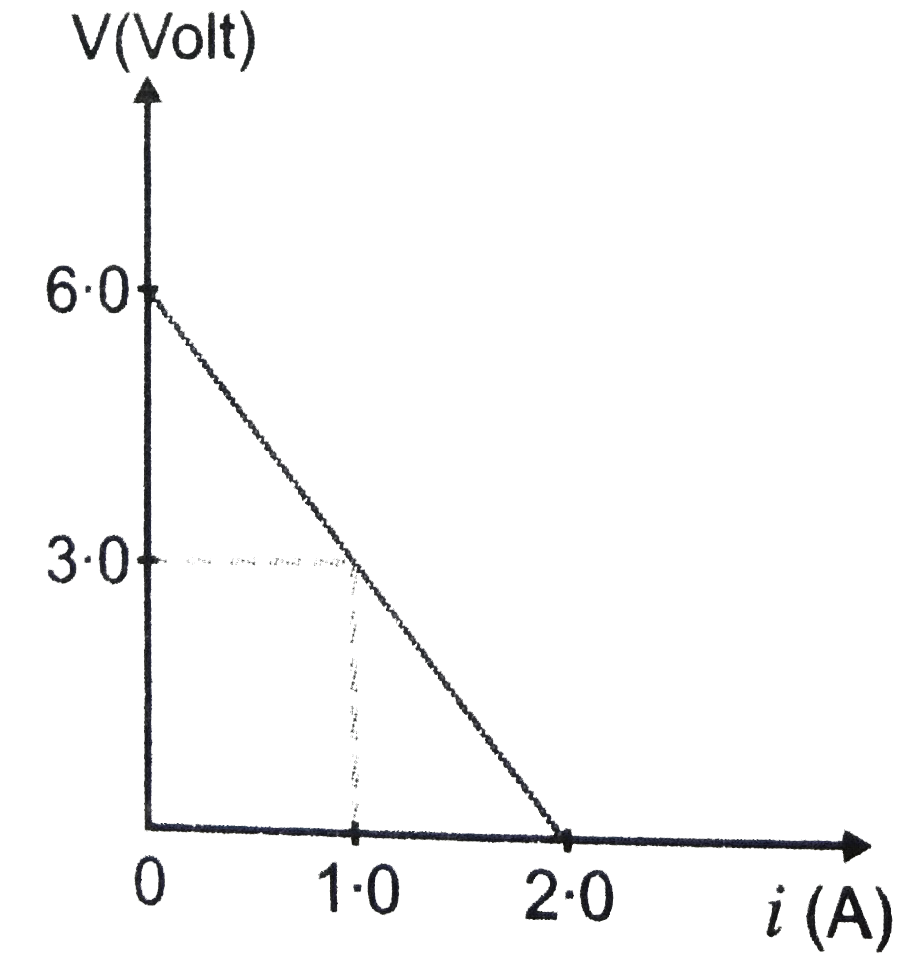
The correct Answer is:1.4V(b)1A(c ) 0.7 Omega
(a) When I=0 , total emf = terminal voltage
∴4ε=5.6Vorε=1.4V
For the graph when when
1=1.0A,V=2.84=0.7V (for each cell)
(c) internal resistance of one cell r=εImax=1.42.0=0.7Ω
(b) The output power is maximum when external resistance = total internal resistance
=4r
Imax=total emftotal resistance=4ε4r+4r=ε2r
=1.42×0.7=1A
Topper's Solved these Questions
- CURRENT ELECTRICITYBook:PRADEEPChapter:CURRENT ELECTRICITYExercise:Jee (main and advance)
Explore 4 Videos
- CURRENT ELECTRICITYBook:PRADEEPChapter:CURRENT ELECTRICITYExercise:Interger Type
Explore 2 Videos
- CURRENT ELECTRICITYBook:PRADEEPChapter:CURRENT ELECTRICITYExercise:Value based
Explore 2 Videos
- COMMUNICATION SYSTEMSBook:PRADEEPChapter:COMMUNICATION SYSTEMSExercise:MODEL TEST PAPER-2
Explore 9 Videos
- DUAL NATURE OF RADIATION AND MATTERBook:PRADEEPChapter:DUAL NATURE OF RADIATION AND MATTERExercise:Exercise
Explore 191 Videos
Similar Questions
The adjoining graph shows the variation of terminal potential difference V, across a combination of three cells in series to a resistor, versus the current, I:
(i) Calculate the emf of each cell. (ii) For what current I, will the power dissipation of the circuit be maximum ?
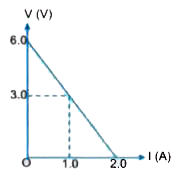
View SolutionThe plot of the variation of potential difference across a combination of three identical cells in series, versus current is as shown in figure. What is the emf and internal resistance of each cell?
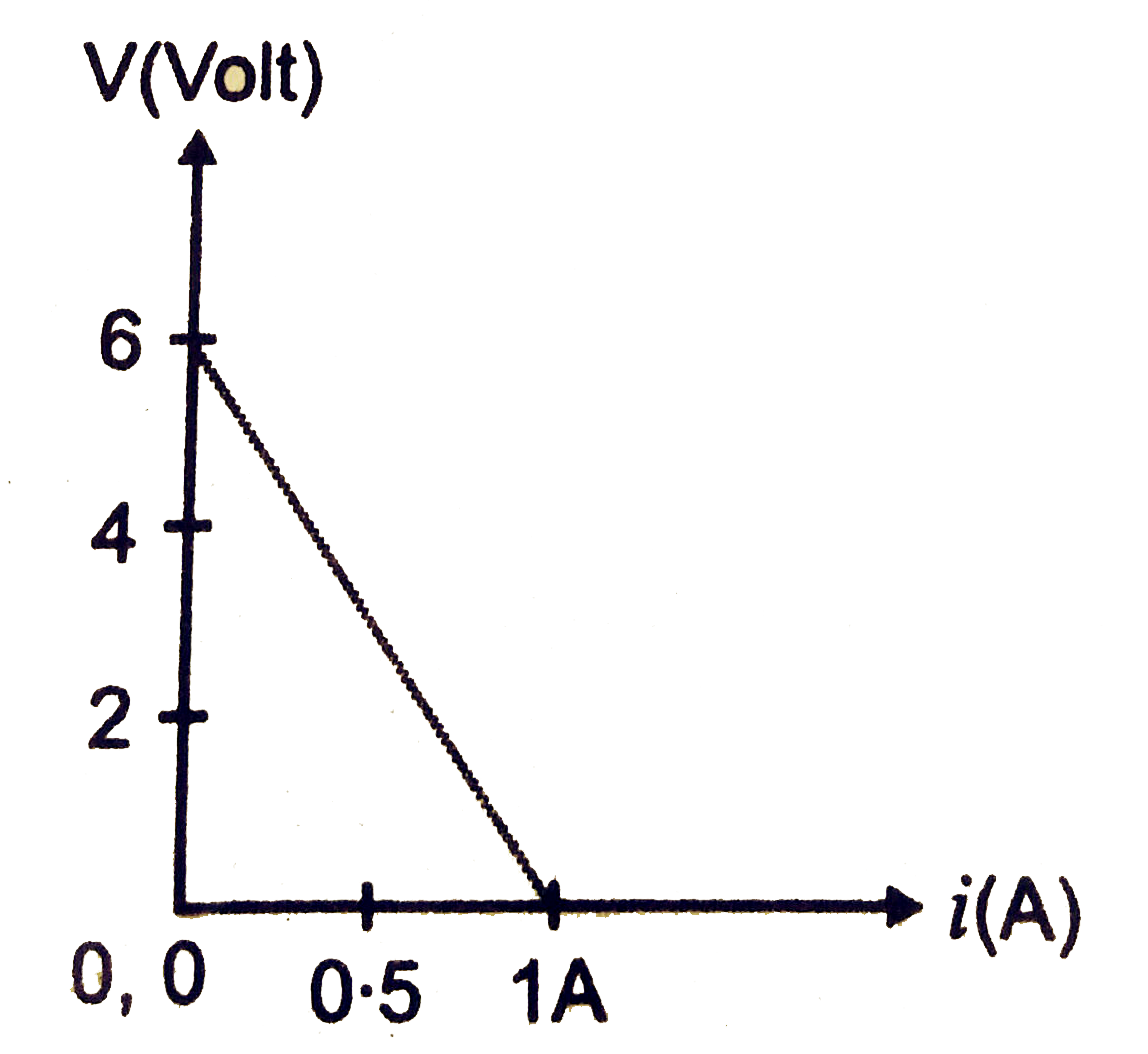
View Solution
Knowledge Check
In an a.c. circuit with voltage V and current I, the power dissipated is
AVIB12VIC1√2VIDdepends on the phase between V and IWhat must be the current in a circuit if potential difference across a cell is equal to the emf of the cell.
A0B10AC0.5 AD105 AIn an AC circuit with voltage V and current I, the power dissipated is
AVIB12VIC1√2VIDDepened on the phase between V and I
4 cells of identical emf E and internal resistance r, are connected in series to a variable resistor. The following graph shows the variation of termical voltage of the combination with the current output. Fig. MTP 1.2.
(a) What is the emf of each cell used?
(b) For what current from the cells, does maximum power dissipation occur in the circuit?
(c) Calculate the internal resistance of each cell.
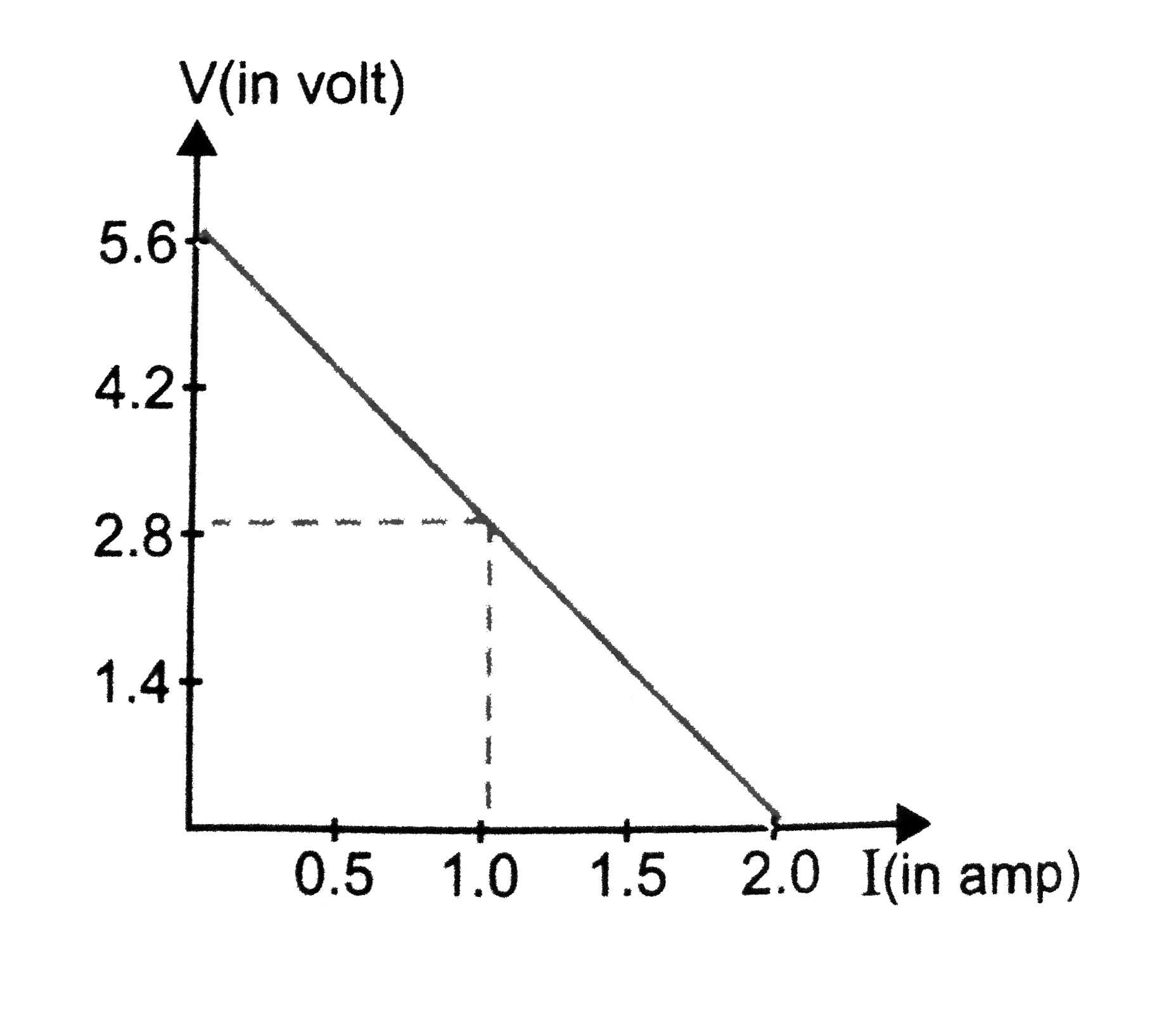
View SolutionPlot a graph which shows the dependence of current I on potential difference V across a resistor R .
View SolutionPlot a graph which shows the dependence of current I on potential difference V across a resistor R .
View SolutionFor a cell, the graph between the potential difference (V) across the terminals of the cells and the current I drawn from the cell is as shown in figure. Calculate the e.m.f. and the internal resistance of the cell.
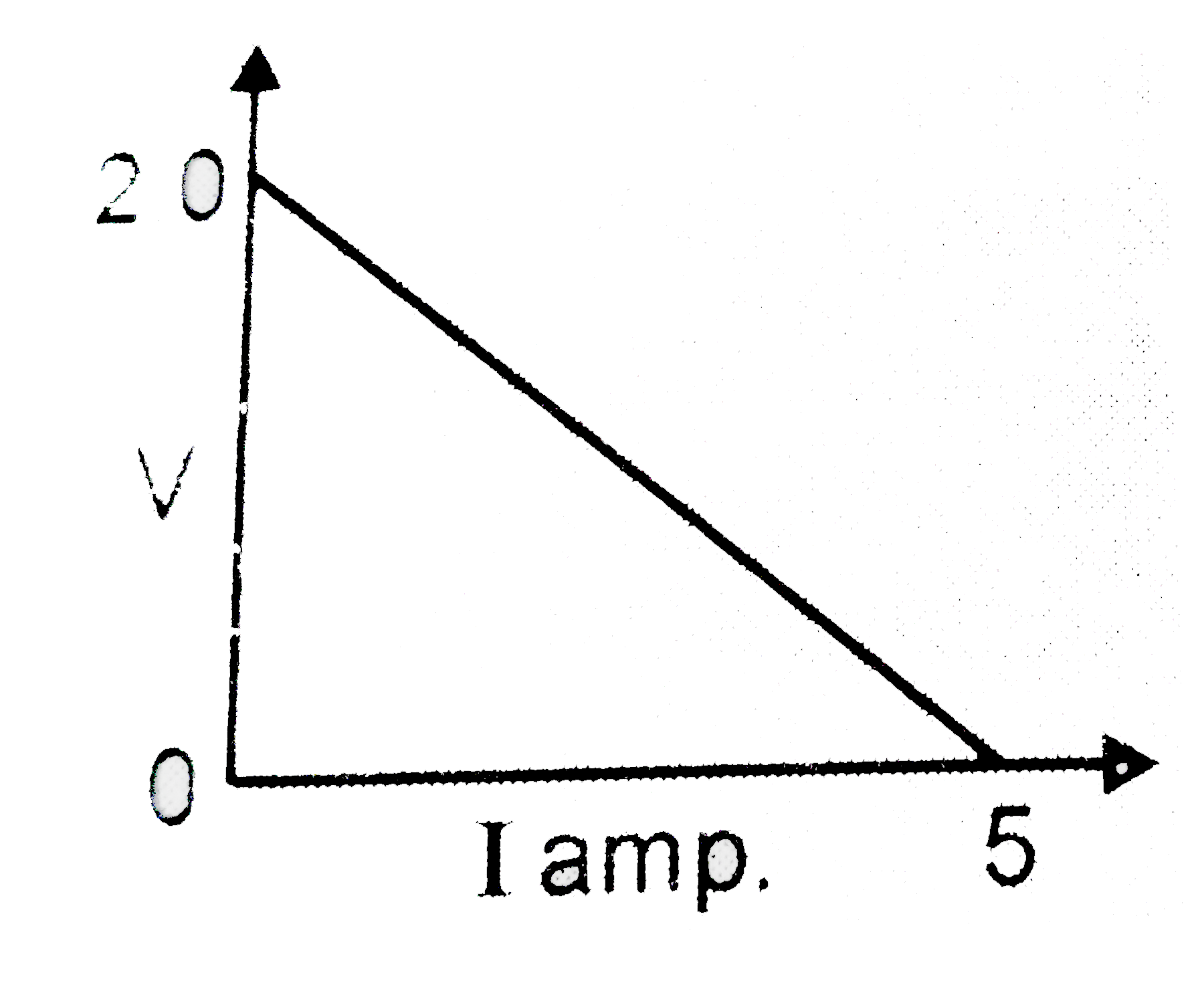
View SolutionThe curve between current (i) and potential difference (V) for a photo cell will be
View Solution

